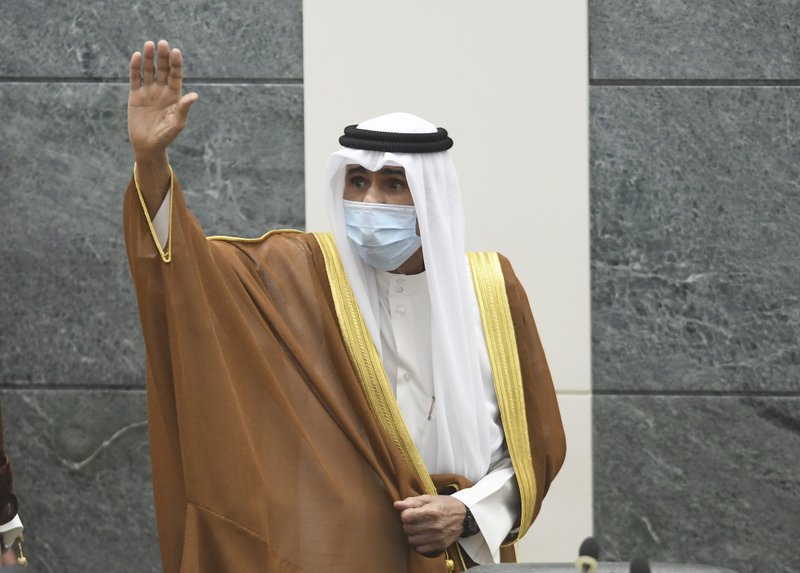The new emir of Kuwait, Sheikh Nawaf Al Ahmad Al Sabah, who ascended the throne following the death of his half-brother last week, named Sheikh Meshal al-Ahmad, deputy head of the country’s National Guard, as the new crown prince on Wednesday.
The emir’s selection must still be approved by Kuwait’s parliament. The parliament speaker said that a vote on the selection will take place on Thursday, the last day of the parliament’s term.
At age 80, Sheikh Meshal, half-brother of the late Sheikh Sabah Al Ahmad Al Sabah and the fourth sibling to ascend from the same branch of the royal family, is widely seen as a conventional and safe choice.
Given his career in the interior ministry, very little is known about his policy preferences. Unlike other top contenders for the post, he has steered clear of the country’s tumultuous politics and the royal family’s public feuds over corruption allegations.
His selection delays any generational change in Kuwait, reinforcing the contrast with Saudi Arabia and the United Arab Emirates, now in effect led by powerful young princes. Under the late Sheikh Sabah, who commanded great respect as a seasoned diplomat in a region divided along political and sectarian lines, Kuwait managed to pursue independent foreign policies despite the pressures of more belligerent regional heavyweights.
A worsening coronavirus outbreak and plunging oil prices have sharpened attention to Kuwait’s domestic grievances. Gridlock in parliament has blocked the passage of a public debt law needed to raise $65 billion and mitigate the country’s looming liquidity crisis, and calls are growing for political reform.
Earlier on Wednesday, Al Sabah asked the Cabinet to continue performing its duties despite the prime minister’s offer to resign, Kuwait’s state-run news agency KUNA reported Tuesday.
The prime minister of the tiny oil-rich Gulf country and his Cabinet made the offer to Al Sabah in a nod to giving him the chance to appoint a replacement as custom dictates.
But Sheikh Nawaf “affirmed his great confidence” in the government of Prime Minister Sheikh Sabah Al-Khaled Al Hamad Al Sabah, according to KUNA. He asked the same government to “continue carrying out its tasks” ahead of parliamentary elections tentatively set for late November.
The move may signal Sheikh Nawaf’s desire to follow the political path charted by his predecessor, the late Sheikh Sabah Al Ahmad Al Sabah, and also allows Kuwait to avoid the difficulties of forming a new government ahead of elections, when the Cabinet will end its term anyway. Parliament speaker Marzouq al-Ghanim announced that the legislature would dissolve itself Thursday to set the stage for elections, according to the state-linked al-Qabas newspaper.
Despite Sheikh Nawaf’s high praise for the current Cabinet, ten lawmakers last month submitted a no-confidence motion against Kuwait’s deputy prime minister and interior minister amid growing dissatisfaction over the government’s handling of the coronavirus pandemic and budgetary problems.
Kuwait’s treasury is running out of cash, prompting a major credit agency last month to downgrade the wealthy country for the first time in its history.
As crown prince, Sheikh Nawaf was not known for making any major policy decisions, and at age 83, his greatest impact may be in his choice of successor. Following the death of Sheikh Sabah, who commanded great respect in the region as a seasoned diplomat, speculation has mounted over the next crown prince, especially as top contenders in the past have feuded over corruption allegations.
Kuwait stands out among other monarchies in the Persian Gulf for its empowered and outspoken parliament, which can reject the emir’s pick.
(YWN Israel Desk – Jerusalem & AP)











